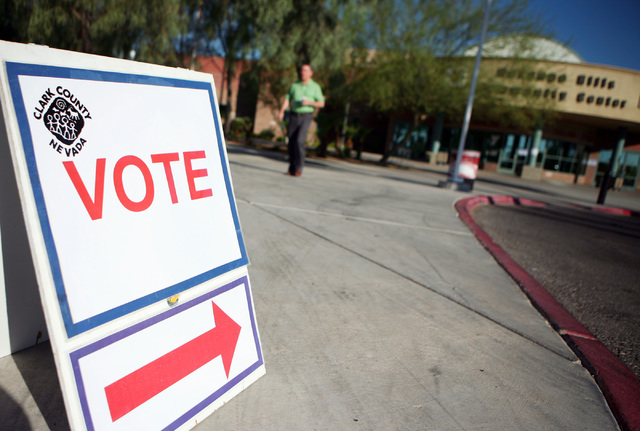Noted pollster Peter Hart finds no good news in 2016 election
No matter who wins the 2016 election, expert pollster Peter Hart says, nothing will change in America’s bitterly divided government.
“We’re in for four more years of hell,” Hart said in a presentation at UNLV’s Boyd School of Law on Monday. “This election solves nothing.”
In the past, even bitterly partisan elections produced brief honeymoons of hope when a new presidential administration was given a chance to get to work, reach across the political divide and produce results before the next election cycle sent everyone to their respective political corners.
Not this time, Hart said. “There’s no shakeout,” he said. “We’re going to go through four more years of this.”
Awesome news. But you’d ignore Hart at your peril: He’s been polling Americans for decades, the Democratic representative on the NBC/Wall Street Journal poll since 1989, and he’s developed a pretty accurate barometer of public opinion.
Hart has just finished with a new survey of Nevada, which he considers a bellwether state. (Nevada voters have gone with the winner in every presidential election but one since 1948.) According to Hart’s latest survey, Nevadans now favor Hillary Clinton over Donald Trump 44 percent to 41 percent, with 8 percent backing Libertarian Gary Johnson. Hart’s survey also found Rep. Joe Heck has a slight lead in the race for U.S. Senate, 47-46 over former Attorney General Catherine Cortez Masto.
According to Hart, Nevada’s bellwether voters are not too happy about their choices.
Nearly 50 percent of the Nevada electorate rate their choices this time around as “not so good” or “terrible.” Just 41 percent said the choices were “very good” or “about average.” And a sunny 8 percent of what one can only assume are blood relatives and paid campaign staffers for the candidates said the choices were “excellent.”
The national mood, the NBC/Wall Street Journal poll found recently, is just as sour, with 63 percent of Americans saying the country is on the wrong track, and just 29 percent saying it’s going in the right direction. Nevadans say the same thing: 59 percent believe we’re on the wrong track, and 33 percent say we’re heading in the right direction.
Fears of terrorism, concern that the American economic system is rigged, worry about the inexorable hollowing out of the middle class, the growing incivility in politics and a gnawing concern that the next generation will be worse off than this one have produced a nation in which traditional power players (think here of Jeb Bush) are no longer seen as effective, Hart said. That’s why Trump and Bernie Sanders did so well, and Jeb Bush did so poorly.
“Power is changing. This is an unusual year, but it didn’t just happen,” Hart said. “It’s an unhappy nation. They’re looking for a change.”
And guess which candidate most represents change in this election?
On the other hand, Hart shared the views of one focus-group member, a Republican voter in Colorado who says she’ll be voting for Clinton because she fears what might happen if Trump becomes commander in chief. (Nevadans agree; 49 percent gave Trump a very poor rating when it comes to “having the right temperament” to be president.)
But that same voter also said she didn’t trust Clinton. Fully 49 percent of Nevadans agree, giving Clinton a very poor rating for “being honest and straightforward.”
But somebody’s got to win.
Hart says the election will only extend the partisan tensions in America rather than resolve national arguments. (To be sure, Trump has threatened to blame election fraud if he loses, while Clinton says she’ll keep working to save the country from Trump if voters don’t elect her.)
Sigh. Only 1,489 days until Election Day 2020.
Steve Sebelius is a Review-Journal political columnist. Follow him on Twitter (@SteveSebelius) or reach him at 702-387-5276 or SSebelius@reviewjournal.com.






















